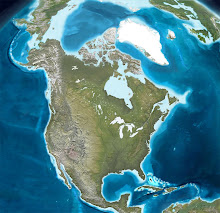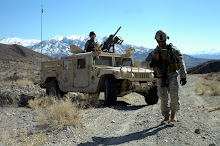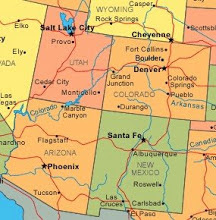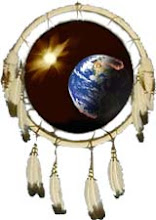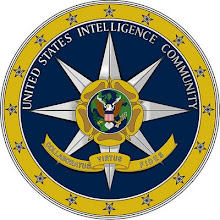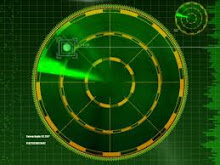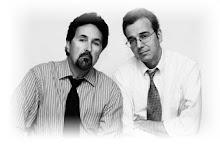By Steve Hammons
Knowingly or unknowingly, people may be looking for transcendent concepts in fields like media, government, education, national defense and international relations. Transcendent concepts can be applied to almost any endeavor and may represent a new wave of thinking about a wide range of human activities.
This perspective includes several assumptions and conclusions.
One factor in this viewpoint is the awareness that new discoveries have been made, and are being made currently, that impact directly on the human race. These discoveries are, in part, related to the capabilities and strengths of human beings as well as the nature of our environment on Earth and in the Universe.
For example, new views about quantum physics, human psychology and other phenomena often provide support for transcendent thinking. Related to this is the viewpoint that these discoveries may indicate that modified approaches to certain challenges are sometimes appropriate.
"Transcendent warfare" concepts can spark new thinking about international conflict and cooperation as well as peace operations, information operations, public diplomacy and humanitarian efforts.
Transcendent ideas can be applied to creative media such as movies, books and online communications platforms.
Whether the challenge is gathering intelligence on destructive terrorists or understanding how the mass media and TV can most successfully connect with audiences, being open to new and interesting developments can be important.
TRANSCENDENT TV
For example, we might look at the changing relationship of people with the TV media. TV is one window into society and can tell us something about ourselves.
In the aftermath of the Hollywood writers strike, studies have shown that TV viewers are drifting away from some of the broadcast networks' programming. A widening variety of good-quality cable channels, delayed viewing via DVRs and current events such as the political campaigns and the financial crisis have been cited as part of the reasons for viewer behavior and choices.
Some observers suggest that viewers want diversion to help them forget their plunging home values, disintegrating financial investments, increasing risks of job loss, apparent government dysfunction and ongoing war in foreign lands.
Other people note that shows having practical value, insight or maybe some valid connection to reality are attractive to many viewers. The idea of shows having meaningful connections to reality should not to be confused with "reality TV" such as competitions at unusual challenges and the camera-eye view of the lives of publicity-seeking lower-tier celebrities.
Another kind of reality TV refers to programs that explore our connections with, and our understanding of other people, society and the fast-changing world we live in today. What is going on in the world? How do I and my family and community fit in? What are the dangers, opportunities and discoveries around us now?
These questions may help create a foundation for TV programming that includes tried-and-true stories and characters, a solid rootedness in interesting current events and plenty of room for imagination and creativity.
Combining these elements with fundamental aspects of human striving, human strength, human dignity and human progress might just be a winning recipe for attracting today's TV viewers. This is the opposite of the "dumbing down" of TV.
Today's mass media, including TV, are platforms within which many creative ideas can flourish, entertain, enlighten and inform.
When we open ourselves to emerging developments and when we craft new approaches and creative endeavors in response to these developments, renewed and significant connections with audiences might result.
CONNECTING AND UNDERSTANDING
The connections between what is going in our lives, our communities, our societies and on our planet are interwoven in many ways. The activities of humanity, the events triggered by Nature and possible impacts from forces and factors we don't fully understand also intertwine.
Exploring the known realities around us as well as examining the unknowns are part of a vibrant and robust approach to many different kinds of endeavors. Some of these knowns and unknowns are equally mysterious, fascinating, frightening or uplifting. They may provide worrisome warnings or hopeful optimism. They can trigger defensive preparation or a peek at a fantastic breakthrough for the human race.
Down-to-Earth challenges can include activities such as developing needed renewable energy, reducing nuclear proliferation and developing innovative educational platforms for our children.
Some of the unusual mysteries that fascinate millions of people are also subject to a transcendent approach.
What are those unidentified flying objects (UFOs) that seem to be spotted fairly frequently over places like Stephenville, Texas? Are all crop circles made by human pranksters? Do humans possess a "sixth sense" of internal awareness that includes extra-sensory perception (ESP)? Are there other dimensions of reality where we go after physical death? What might be hidden within our DNA?
One common denominator in the ideas ranging from transcendent TV to transcendent warfare to unusual transcendent phenomena may be the issue of intelligence gathering and intelligence dissemination. What do people perceive as being valuable, useful, truthful, worthwhile and important? Then, how can the related concepts and information be organized and communicated in effective ways?
A transcendent approach combines the best of solid proven methods along with innovative and leading-edge knowledge and insight. A thoughtful and well-structured combination of these may create another level of understanding and success.
Transcendent viewpoints may also create opportunity for new ways of accomplishing worthwhile objectives that are beneficial at many levels.
skip to main |
skip to sidebar

In the past 30 days, readers from approximately 40 countries or territories using about 20 languages visited the Joint Recon Study Group site.

To see more articles, scroll down the right-side column.

Steve Hammons

Articles from the Joint Recon Study Group site and Transcendent TV & Media site are included.
The Joint Reconnaissance Study Group is the San Diego-based, combined-service/agency, research-and-activities team in my novels "Mission Into Light" and sequel "Light's Hand." This site contains information of interest to the JRSG.
Home page: Joint Recon Study Group site
Readers from around the world visit this site.

In the past 30 days, readers from approximately 40 countries or territories using about 20 languages visited the Joint Recon Study Group site.
April 2021 threat alert: ‘Force protection’ for our troops now the responsibility of all Americans
First responders must deal with society’s problems, shortcomings, injustices every day
Could some UFOs be linked to Native American 'white stone canoe' legends, stories?
Wildland firefighter basic training available at community colleges, tech schools, training centers
‘Boomer remover’ coronavirus is bigger threat to WWII generation that saved the world
‘Black swan’ events that aren’t: Coronavirus, climate emergency, unidentified aerial phenonema
Reagan’s complete 1987 UN message on ‘alien threat’ overlooked: Grave danger here, now
Was Reagan briefed about UFOs and original ‘Day the Earth Stood Still’ movie?
My military draft lottery number was #165 during final Vietnam War years
“Keep On The Sunny Side,” by The Whites, from movie O Brother, Where Art Thou?”
Living along Ohio River for centuries, Native Shawnee called it ‘Kiskepila Sepe’ – ‘Eagle River’
Native American words around us: States, towns, rivers, lakes, terrain, plants, animals, military
Athens County, Ohio, was key spot when colonists, Redcoats fought Shawnee in 1774 battle
1787 Northwest Ordinance set course for Ohio, Indiana, Illinois, Michigan, Wisconsin, Minnesota
Smallpox-tainted blankets were 1763 bioweapon on northern Appalachian Mountains frontier
Diana Krall performs “Maybe You’ll Be There" live in Paris with Paris Symphony Orchestra 2001.
Books to read in 2021? Novels "Mission Into Light" and the sequel "Light's Hand"
Novel excerpt: Renew, prepare America with ‘Urgent Response Group’ for teens, young adults
Diana Krall performs “I Get Along” live in Paris with Paris Symphony Orchestra 2001.
Steve Tyrell sings “Give Me the Simple Life.”
Diana Krall performs “Love Letters” live in Paris with Paris Symphony Orchestra 2001.
Visit the article archives!

To see more articles, scroll down the right-side column.
Novel "Mission Into Light" overview on Amazon
Novel "Light's Hand" overview on Amazon
Adventures of the Joint Recon Study Group: Overview and synopses of activities and operations
Key chapter overviews: Points of interest in the novel "Mission Into Light"
Key chapter overviews: Points of interest in the novel "Light's Hand"
Multimedia rights available
English and foreign-language book rights, audio book and e-book rights for "Mission Into Light" and "Light's Hand" are available. Movie and TV rights are available.
I'm seeking agent representation for these works and rights.
Please contact Steve Hammons for more information at hammons55@gmail.com.
Feature film screenplay
I completed a feature film screenplay in 2006 based on “Mission Into Light” and “Light’s Hand” combining key elements of both novels.
The screenplay takes audiences into the adventures and discoveries of the Joint Recon Study Group and the relationships among team members, friends and associates as they explore leading-edge research and emerging transcendent developments.
I'm seeking agent representation for this screenplay.
.........................
I also wrote a TV series pilot script based on "Mission Into Light" and "Light's Hand" story. I'm seeking agent representation this script.
About the Author

Steve Hammons
About the Author
I was born and raised in southwestern Ohio near the Kentucky and Indiana borders, then went to college at Ohio University in the southeastern Appalachian region of the state near West Virginia.
I graduated with a dual major in communication (journalism focus) and health education (psychology focus) with a minor in pre-law.
Ohio U. is home to the respected Scripps College of Communication and E.W. Scripps School of Journalism.
I also completed two graduate-level courses in guidance counseling theory and method at Ohio U.'s College of Education, School of Applied Behavioral Sciences and Educational Leadership.
At the end of my undergraduate education at Ohio University, I moved to the beautiful American Southwest where I applied my education, continual training and and ongoing experience to related professional fields such as health care, journalism and special research areas.
My novels "Mission Into Light" and the sequel "Light’s Hand" are available in e-book and 6"x9" paperback from most online booksellers worldwide.
Readers review metaphysical-military-intelligence adventure novel ‘Mission Into Light’
My articles on DoD CultureReady blog, Defense Language and National Security Education Office
Transcendent TV & Media site
Past articles: Scroll down the right-side column for more articles.

Articles from the Joint Recon Study Group site and Transcendent TV & Media site are included.




























